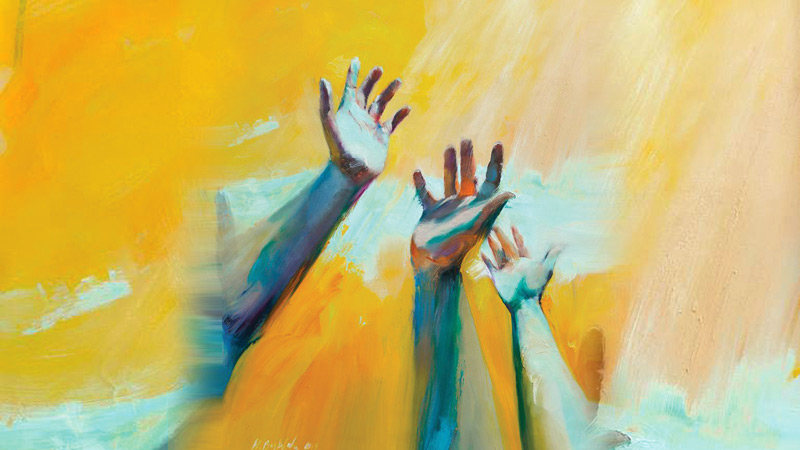Amid the recent presidential elections and the change in regime, there is a palpable sense of hope among the public.
Many citizens are cautiously optimistic about the new developments, eager to see how this transition will unfold and impact their lives. This sentiment reflects a collective aspiration for political emancipation, economic relief, and a departure from the previously entrenched systems of governance.
As the nation stands at this important crossroads, the promise of a new political landscape invites both excitement and scrutiny, igniting discussions about the future direction of the country and the potential for transformative change.
Youth Observer reached out to several artists and professionals in various fields to understand the changes they expect as a result of this political shift.
Gevin Abhishek, Actor
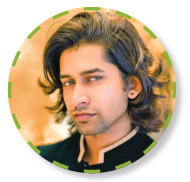 ‘I do not believe in different regimes, parties, or colors; I believe in the regime of the people. Democracy is the true power of the people. After decades of power struggles and oppressive dictatorships, our beautiful country has suffered greatly. The people are weary, angry, and disappointed, having witnessed the devastation wrought by self-serving, corrupt politicians who prioritise their interests over the common good.
‘I do not believe in different regimes, parties, or colors; I believe in the regime of the people. Democracy is the true power of the people. After decades of power struggles and oppressive dictatorships, our beautiful country has suffered greatly. The people are weary, angry, and disappointed, having witnessed the devastation wrought by self-serving, corrupt politicians who prioritise their interests over the common good.
This collective discontent has ignited a movement for change, as we all know that people are hitting the streets demanding betterment. The recent elections reflect a powerful uprising, with citizens using their votes wisely to reject corruption and demand accountability. As an actor in Sri Lanka, I hope that every industry, including the arts, will prosper, and we must all work hard to achieve this. I am encouraged that people are finally recognizing the importance of quality in art, drama, and the messages we deliver to society.
We stand at a crucial juncture. The new government must seize this opportunity to begin anew, focusing on uplifting livelihoods, enhancing production, and ensuring peace for all. Now is the time for each of us to contribute to our nation’s resurgence. By working hard and standing together, we can emerge stronger than ever. Let us commit to this shared vision and build a future defined by integrity, justice, and opportunity for all. Together, we can create a truly democratic society that serves the interests of the people.
Sathya Ramanayake, Model and women’s rights activist
 She expressed her optimism about the recent regime change, believing that this transition brings renewed hope for progress and positive developments within the community. “I am hopeful that this change will lead to meaningful improvements,” she said.
She expressed her optimism about the recent regime change, believing that this transition brings renewed hope for progress and positive developments within the community. “I am hopeful that this change will lead to meaningful improvements,” she said.
Sathya emphasised the importance of holding the new leadership accountable for their commitments. It will be crucial to see how they translate their promises into action, she remarked, highlighting the need for transparency and follow-through. She encourages everyone to remain engaged and vigilant, as the true measure of success will be the tangible outcomes of their policies and initiatives.
The Chairperson’s comments reflect a broader sentiment among community members who are eager for transformative change. By fostering an environment of collaboration and dialogue, Sathya believes that the new leadership can effectively address the pressing issues faced by the community.
She concluded with a call to action, urging individuals to stay informed and actively participate in shaping the future. “Let us work together and support each other as we navigate this new chapter,” she said, reinforcing the importance of unity in the pursuit of social justice and equality.
Dasun Pathirana, Actor
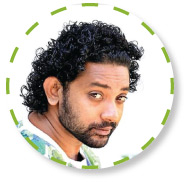 ‘I believe the outcome of this presidential election signifies a strong desire among the populace for immediate change. After enduring decades of corruption and broken promises, frustration within the country has reached a critical level. Citizens are eager for a fresh start and a government that genuinely represents their needs and aspirations.
‘I believe the outcome of this presidential election signifies a strong desire among the populace for immediate change. After enduring decades of corruption and broken promises, frustration within the country has reached a critical level. Citizens are eager for a fresh start and a government that genuinely represents their needs and aspirations.
As we look forward to the new administration, there is a sense of hope that this leadership will fulfill its commitments and implement meaningful reforms. The electorate is closely watching to see whether the new regime will not only talk the talk but also walk the walk. Accountability and transparency are essential in restoring public trust, and the expectations are high.
However, it is vital to remember that the power ultimately rests with the people. If the new administration fails to deliver on its promises, the electorate has the right to demand change again. This election serves as a reminder that the voices of the citizens matter and that they have the ability to shape their government.
As we move forward, let us remain engaged, informed, and ready to advocate for the changes we wish to see. Together, we can work towards a brighter future for our nation.
Heshan Niluminda, Young LGBTIQ activist
 ‘Historically, the NPP has demonstrated a commitment to socialist principles, which I believe could be beneficial for creating opportunities for youth and supporting young entrepreneurs.
‘Historically, the NPP has demonstrated a commitment to socialist principles, which I believe could be beneficial for creating opportunities for youth and supporting young entrepreneurs.
By focusing on equitable growth and accessible resources, these concepts have the potential to empower the next generation. I am optimistic about this change and eager to see how it will be implemented.
The success of these initiatives could significantly enhance the prospects for youth engagement and entrepreneurial development, ultimately contributing to a more dynamic and inclusive economy. Let us observe how these changes unfold and their impact on our community.
Ranuthi Fonseka, Model/Athlete
 ‘As a Sri Lankan citizen, I view the change in government with a mixture of hope and cautious optimism. The arts have always been a powerful medium for expression and social reflection in Sri Lanka, and I hope this transition will provide greater support for the creative community.
‘As a Sri Lankan citizen, I view the change in government with a mixture of hope and cautious optimism. The arts have always been a powerful medium for expression and social reflection in Sri Lanka, and I hope this transition will provide greater support for the creative community.
We need policies that nurture artistic talent, promote freedom of expression, and offer platforms for young artists to thrive. At the same time, I remain mindful that meaningful change requires a sustained commitment to cultural development, so I am eager to see how this new leadership will address these needs.
Asela Abeywardene, Artist
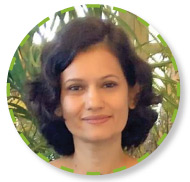 ‘Whatever the regime is, I believe that those who are granted power should be held accountable by the people. Unfortunately, more often than not, when we cast our votes, we carry a subconscious desire to defend that vote, even when we can see that the actions of the elected person or party are detrimental to the security and well-being of the population.
‘Whatever the regime is, I believe that those who are granted power should be held accountable by the people. Unfortunately, more often than not, when we cast our votes, we carry a subconscious desire to defend that vote, even when we can see that the actions of the elected person or party are detrimental to the security and well-being of the population.
It is this servile mentality that we need to eliminate, especially as artists. Whatever the art form may be, art is a language that can be used effectively to voice concerns, opinions, and to drive change. When an artist decides to use that language, they need to be aware of the responsibility they have toward promoting the well-being of the public at large. If an artist pledges allegiance to a political figure or a party solely to reap personal benefits — either financially or otherwise — or just because they want security by belonging to a ‘cult’ or a group, then they fail to fulfill that responsibility.
Whichever regime is in power, I strongly believe that we should be in a position to critique their decisions and actions objectively and constructively. We should also be very aware of how regimes can be influenced by forces beyond our borders that aim to destabilise nations for their own economic and geopolitical gains.
As for the new regime, it is too early for me to comment on how effective and efficient they will be in fulfilling the mandate they have been given. I strongly believe that power should remain with communities to make decisions and implement changes for their own well-being and development. Individuals, communities, and society as a whole should be aware that their responsibility goes beyond casting a vote.
Geethika Dharmasinghe, Political activist, Lecturer, University of Colombo
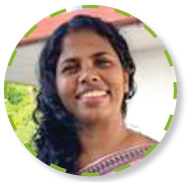 ‘It is our expectation that Anura Dissanayake’s victory will embody the people’s political emancipatory aspirations, relieve them from economic distress, and build a counterforce against right-wing economic agendas, including the interference of global financial powers such as the IMF.
‘It is our expectation that Anura Dissanayake’s victory will embody the people’s political emancipatory aspirations, relieve them from economic distress, and build a counterforce against right-wing economic agendas, including the interference of global financial powers such as the IMF.
This vision entails creating a politics that safeguards the sovereignty of the people against both regional and global powers.
The consumerist, capitalist development model under which we live has put even the very existence of the earth in crisis. Therefore, we are compelled to imagine a new human ecological civilisation.
Even if electoral politics will do very little to achieve these expectations, we should still celebrate this democratic shift — the rise of a left-wing party to power for the first time in Sri Lanka’s political history. This election is only the beginning of our democratic struggle for equality and freedom, as it creates a space for inclusive politics where minority groups can live without fear of death.
I hope the party will avoid niche, performative leftism that only attracts those with high cultural capital and instead work toward building a popular nationalist left grounded in its most natural allies — the working people. The new social contract is what the Aragalaya people demanded, so we hope the new president will be able to fulfill their aspirations.
Anushka Kahandagama, PhD scholar, University of Otago
 ‘I like to see a transformation in the political culture of the country that is particularly evident in how people engage with the state and participate in politics. I agree that, following the 2022 protests (Aragalaya), there has been a progressive increase in people’s active participation in politics.
‘I like to see a transformation in the political culture of the country that is particularly evident in how people engage with the state and participate in politics. I agree that, following the 2022 protests (Aragalaya), there has been a progressive increase in people’s active participation in politics.
However, I believe it is essential for the new government to enhance citizen-state engagement by using direct and immediate approaches, as well as indirect and gradual ones.
This endeavour can be achieved by eliminating certain characteristics of the existing toxic political culture. For example, when there is a call for change from the people, the state should rely on dialogue rather than patriarchal, military, masculine, and oppressive methods.
Dialogue should be encouraged and facilitated regardless of differences in class, ethnicity, gender, or religion among the people involved. Citizens should not face discrimination based on these factors when interacting with the state and should have the ability to identify with it.
While one might argue that these are fundamental human rights already established, I am focusing not merely on the laws and regulations themselves, but on how these power dynamics operate on the ground.
I expect the new government to expand the space for citizens to engage in progressive political dialogue by implementing changes in education.
Although increasing budget allocations, enhancing infrastructure, and ensuring that every child has access to education are important steps, the quality of education needs significant improvement. For instance, rather than simply presenting objective and static information to students, they should be encouraged to critically reflect on the material they encounter. Enhancing their ability to analyze information, rather than just memorize it, is essential.
At the same time, I hope the new government will recognise and incorporate diverse knowledge systems into education, rather than relying on an authoritative perspective of society. For example, students should learn that there are various ways to live and achieve success, rather than being limited to colonial or neoliberal definitions of success.
A recent example involves certain so-called progressives criticising the political decisions of Malaiyaha Tamils based on their formal education. The country’s education system should recognize the diversity of knowledge, including that possessed by these communities.
A progressive shift in the political landscape would greatly improve the country’s development, which should not be limited to economic growth but should also include social and political dimensions.
Ilango Ram, Filmmaker
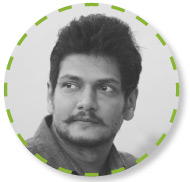 ‘As a Sri Lankan, I hope to see changes in terms of transparent governance and sustainable development for the country. As a filmmaker, I long for a space where art and culture can flourish, allowing diverse voices and stories to resonate with our people. A government that upholds freedom of expression is essential in shaping both our nation’s identity and its global footprint. I envision a future where Sinhalese and Tamils can collaborate harmoniously, fostering unity and creativity.
‘As a Sri Lankan, I hope to see changes in terms of transparent governance and sustainable development for the country. As a filmmaker, I long for a space where art and culture can flourish, allowing diverse voices and stories to resonate with our people. A government that upholds freedom of expression is essential in shaping both our nation’s identity and its global footprint. I envision a future where Sinhalese and Tamils can collaborate harmoniously, fostering unity and creativity.





